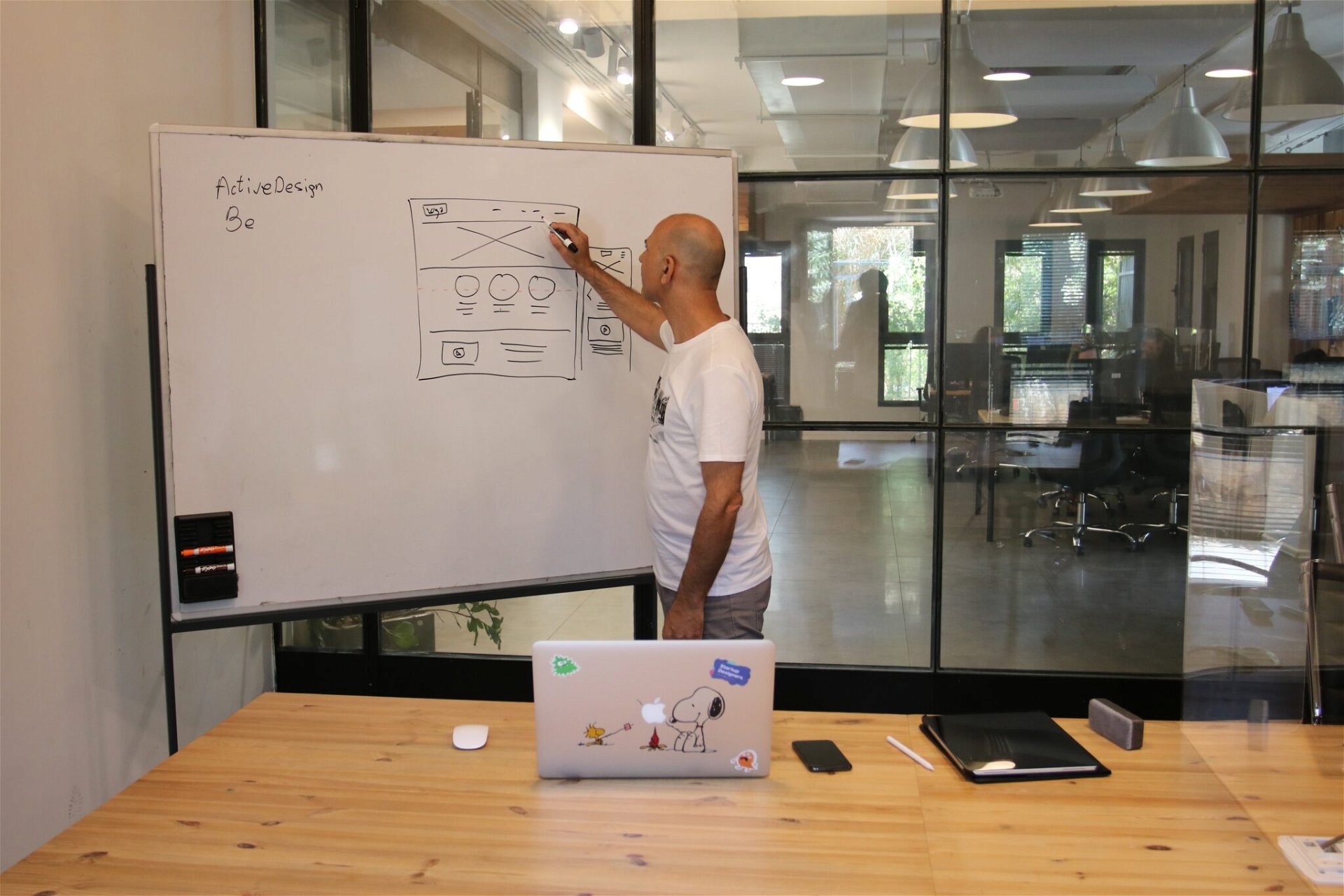
UX design can significantly enhance your website’s performance. It’s the key for encouraging visitors to engage with your website and for driving conversions.
Providing a seamless and enjoyable user experience has become crucial for the success of any website in this digital era.
From responsive design and streamlined navigation to page load speed optimisation and reducing user friction. Every aspect of UX design plays a significant role in boosting website performance.
The Impact of UX Design on Website Performance
UX design goes beyond aesthetics. It’s about creating a website that is intuitive, user-friendly, and efficient.
The process involves understanding the needs and expectations of users. Using this knowledge, UX design helps streamline interactions, reduce friction, and enhance overall website performance.
By incorporating UX design principles, you can create a website that not only looks good, but also functions seamlessly.
Importance of Responsive Design for Enhanced Performance
In today’s mobile-driven world, responsive design is paramount for optimising website performance.
Users are frequently accessing websites from various devices and screen sizes. Responsive design ensures your website is accessible, visually appealing, and functions flawlessly across platforms.
You can provide a consistent and seamless user experience, regardless of the device used. For desktops, laptops, tablets, and smartphones.
This leads to higher user satisfaction, increased engagement, and improved performance metrics, which also benefits your ranking on Google.
Streamlining Navigation
When people visit a website, they expect to find information quickly and easily. It’s important to use UX design to guide users through your website seamlessly.
By organising information, simplifying menu structures, and providing easy-to-use navigation elements. Users are able to easily discover what they’re looking for.
It also helps boost website performance metrics, such as average session duration and page views. As users find what they need efficiently. Leading to increased engagement and higher conversions.
Optimising Page Load Speed Through UX Design
Slow-loading websites can frustrate users and negatively impact your website’s performance.
Implementing UX design principles involves optimising page load speed by compressing images, minifying code, and leveraging caching techniques.
This creates an enjoyable, positive user experience that keeps users engaged and encourages them to explore more of your website.
These improvements not only provide a better user experience but also contribute to better search engine rankings.
Enhancing User Engagement with Effective UX Design
User engagement is a key metric that directly affects website performance.
By employing effective UX design techniques, you can enhance user engagement and keep visitors on your website for longer.
Interactive elements, personalised content, persuasive calls-to-action (CTAs), and visually appealing design all contribute to increased user engagement.
Engaged users are more likely to explore your website, consume your content, and convert into customers.
It’s important to focus on UX design strategies that encourage interaction, personalisation, and a seamless user journey. You’ll drive higher engagement levels, boost performance metrics, and achieve your business goals.
The Role of UX Design in Minimising User Friction
User friction refers to any obstacles or frustrations that users encounter while interacting with a website. Through intentional UX design, you can identify and address pain points, simplify complex processes, and create an effortless user journey.
User-centric design decisions, streamlined workflows, clear instructions, and optimised forms are some of the ways UX design can reduce friction. Creating an improved user experience.
By minimising user friction, you enhance the overall user experience. Therefore improving website performance and increasing user satisfaction, which leads to more users discovering the website, as well as returning to the site.
Mobile-Friendly UX Design
As more users access websites through mobile devices, having a mobile-friendly design is essential.
It involves considering the unique characteristics of mobile interfaces. Aspects like the smaller screens, touch gestures, and limited input options, and tailoring the design to accommodate these factors.
UX design for mobile-friendly websites focuses on creating intuitive navigation, legible and responsive layouts, touch-friendly interactions, and optimised content for smaller screens.
By prioritising UX design in mobile-friendly design, businesses can deliver a user experience that is tailored and efficient for mobile.
Usability and Accessibility
Usability and accessibility are fundamental aspects of UX design that directly impact website performance.
Usability focuses on making your website easy to navigate, understand, and use, ensuring a positive user experience. Accessibility, on the other hand, ensures that your website is inclusive and accessible to users with disabilities.
By adhering to web accessibility standards, providing alternative text for images, and considering colour contrast, you can create a website that is usable and accessible to all users.
These types of improvements not only enhance user experience but also contribute to improved performance metrics, higher user satisfaction, and a broader reach of your website.
Measuring Performance Metrics: Insights from UX Design
To truly understand the impact of UX design on website performance, it’s essential to measure and analyse relevant performance metrics.
Including tracking metrics such as bounce rate, conversion rate, average session duration, and user feedback. This enables you to gather valuable insights into how users interact with your website.
These metrics provide valuable feedback on the effectiveness of your UX design strategies and help identify areas for improvement.
Ensure you continuously measure performance metrics and analyse user behaviour. As you can regularly refine and update your UX design approach. Optimise website performance, and create a user experience that aligns with your evolving business goals.
Contact UX Design Experts at Chameleon
UX design is an ongoing process that requires continuous evaluation and refinement.
Make sure you’re staying informed about the latest UX trends, conducting user testing, and listening to the user feedback. This ensures your website evolves with the changing needs and expectations of your audience.
Investing in UX design is not only about improving website performance. It’s also about building strong connections with your users, fostering trust, and establishing your brand as a leader in user-centric design.
If you’re looking to enhance your website with UX design and performance, don’t hesitate to reach out to our expert Web team at Chameleon. We’re here to help you create an exceptional user experience that delights your audience and drives meaningful results.
Start prioritising UX design today and get in touch with us!
Sections:
Share This Content
More Chameleon Insights
- Digital Marketing
Google Search Console Adds New Branded Queries Filter
Google Search Console has introduced a brand new feature: the branded queries filter. This latest addition provides users with a new way to filter their website performance. The feature is designed to help you understand your traffic better and what’s driving users to your website by allowing you to differentiate between query types. What is…
12 Dec 2025
- Digital Marketing
How To Optimise For Google’s E-E-A-T Signals
In this blog, we'll explain what Google E-E-A-T signals are, and how you can optimise your website for greater trust and authority.
28 Nov 2025
- Digital Marketing
What Is Generative Engine Optimisation? (GEO)
What is GEO? In this blog, we delve deep into what Geneartive Search Optimisation is, and how it's shaping the future of digital marketing.
17 Nov 2025
- Digital Marketing
How AI Is Changing Content Creation in 2025
Discover how AI is changing content creation in 2025 with Chameleon Web Services. Find out about AI copywriting, social media & video form in our full guide.
30 Oct 2025
- Digital Marketing
- Social Media
- Web Design
Top 10 Canva Tips – What Every Content Creator Should Know
Discover Chameleon Web Services top 10 Canva Tips for content creators. Design eye-catching graphics with ease. Perfect for beginners & pros alike.
16 Oct 2025
- Digital Marketing
Google Removes the ‘&NUM=100’ Parameter: What it Means for Digital Marketing
Google has removed the '&NUM=100' parameter, but what does this mean for digital marketing? Chameleon Web Services unpack the details and how you can adapt.
02 Oct 2025
- Chameleon Updates
- Company
Which company is best for web designing?
When searching online for the best company for web designing services, it’s easy to feel overwhelmed. With thousands of agencies offering everything from “cheap websites” to “luxury digital experiences,” how do you know which one to choose? Of course, we’d say Chameleon Web Services is the best – and here’s why. Experience That Stands the…
02 Sep 2025
- Advertising
- Car Competition
- Chameleon Updates
- Competition
- Google Advertising
- Marketing
- Prize Draw
- SEO
Car Prizes and Competitions
Car Prizes and Competitions Driving Digital Success The world of car prize draws and competitions has exploded in recent years, with names like Dream Car Giveaways, Nitrous Competitions, Omaze, and 7 Days Performance creating huge followings online. Now, with Porsche Club GB launching its very first official prize draw to win a Porsche, the market…
18 Aug 2025
- SEO
Google Ads vs Facebook Ads for Small Businesses: A Guide
Wondering whether Google Ads or Facebook ads would be better for your small business? Read our full breakdown here to find out.
08 Aug 2025
- SEO
Are Your BT Phone Lines Down? How Chameleon Help Keep Businesses Connected
Is your BT phone line not working but your internet is? Yesterday, as you may know, there was a major outage that hit the main providers such as EE, BT, Vodaphone, and more. With EE and BT phone lines not working, as imagined, this impacted millions of people across the country, customers enquiring about services,…
25 Jul 2025
- SEO
Google To Automatically Display Instagram Photos & Videos In Search Results
Starting from July 10th, 2025, Instagram will begin to automatically surface more public photos and videos from professional accounts in search engine results pages. In this blog, we'll breakdown what this means for click and search, and how you capitalise on this emerging trend.
27 Jun 2025
- Digital Marketing
- SEO
How To Optimise For AI Overviews: 7 SEO Tips
In this blog, we’ll breakdown our top 7 SEO tips to optimise your website for AI overviews. Ensure you don’t get left behind by the new AI revolution with Chameleon Web Services.
03 Jun 2025













